Working Paper
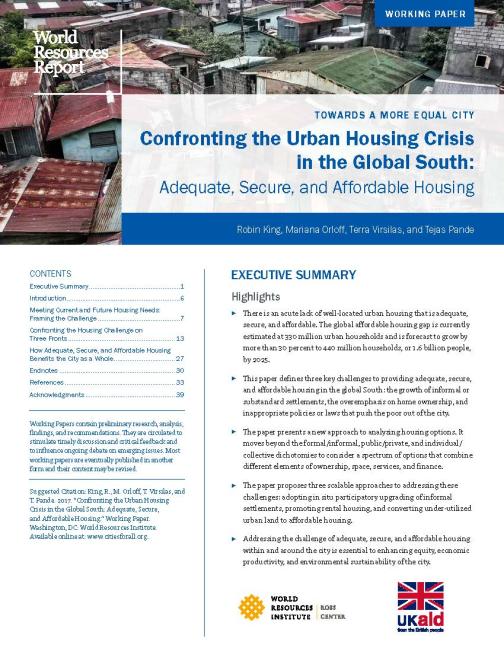
Confronting the Urban Housing Crisis in the Global South
Adequate, Secure, and Affordable Housing
This paper presents strategies to build equitable cities through affordable and quality housing while also improving the environment and economy.
Well-located, secure and affordable housing is lacking in many cities and is only projected to get worse – it is estimated that 1.6 billion people will lack adequate housing by 2025. Addressing the affordable housing gap should be a priority for cities, as it offers the trifold benefits of improved economic productivity, environmental sustainability and equity.
By identifying key challenges to providing adequate, secure, and affordable housing in the global South, this report details recommended approaches to combat the urban housing crisis:
- Participatory upgrading of informal settlements
- Encouraging rental use
- Converting underutilized land and buildings into affordable housing
This report was produced by WRI and provides executive summaries in Chinese, Portuguese and Spanish.
Learn more
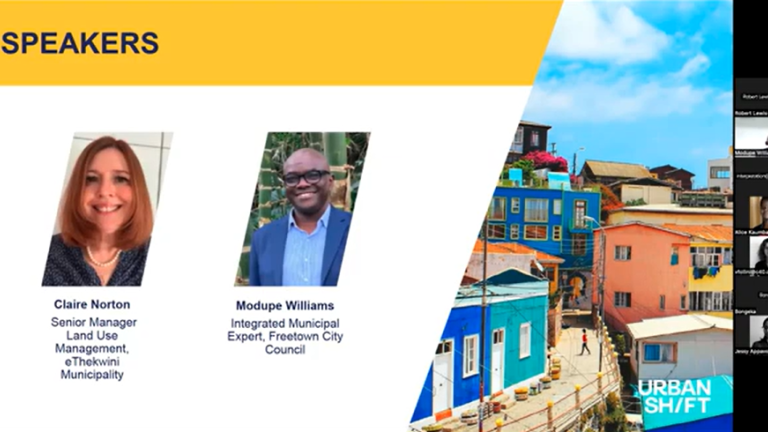
Unlocking Africa's Urban Potential: Improving Informal Settlements through Sustainable Planning
As Africa experiences rapid urban growth, this webinar will shed light on best practices for managing informal settlements and expanding sustainably.
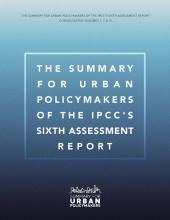
The Summary for Urban Policymakers of the IPCC's Sixth Assessment Report
This publication by the Summary for Urban Policymakers (SUP) initiative synthesizes the latest findings from the IPCC Sixth Assessment Reports in partnership with cities and businesses across the globe.
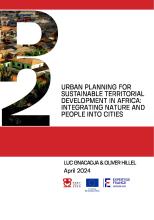
Urban Planning for Sustainable Territorial Development in Africa: Integrating Nature and People into Cities
This white paper published by the Post-2020 Biodiversity Framework – EU Support Project provides information, resources and pathways on how to incorporate nature and people into urban development in Africa.
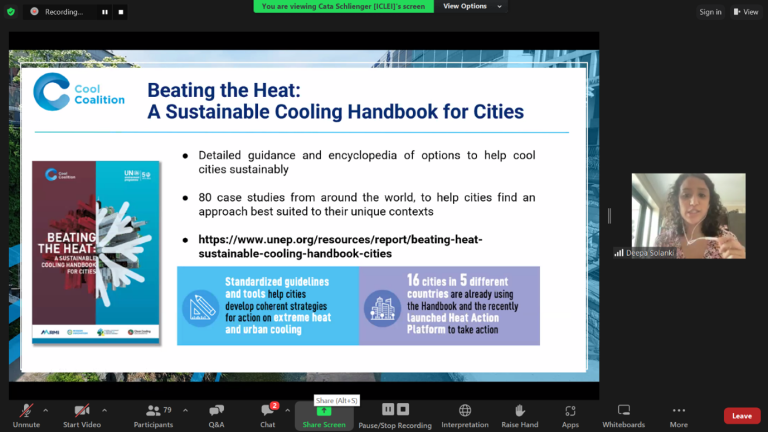
UrbanShift and Energy Exchanges Webinar on Urban Cooling
Join UrbanShift and ICLEI Energy Exchanges on a webinar exploring policy and design solutions for efficiency in the building cooling sector.
